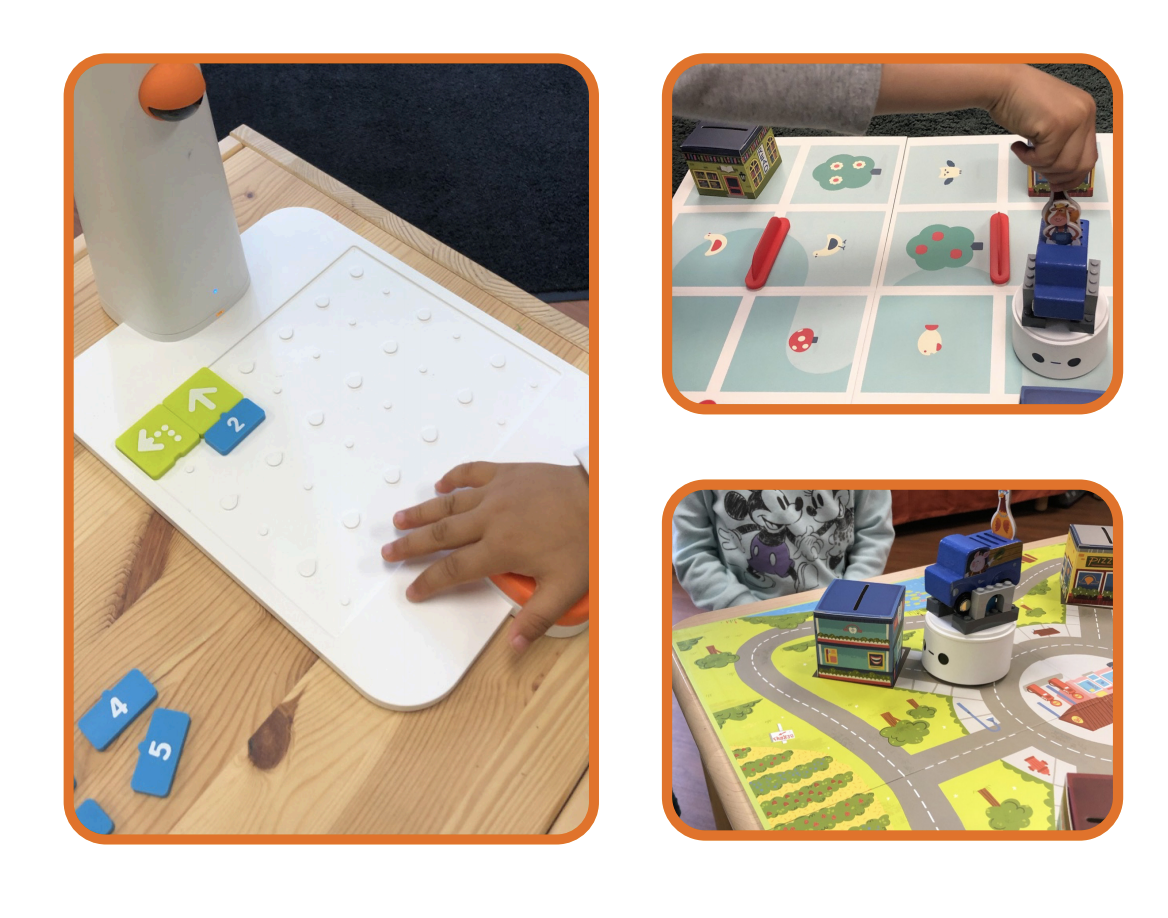
How many kids are in a group?
4
How was the Matatalab robot(s) used?
We like to do "mash-ups", combining the versatile Matatalab Coding Set with well-known stories and games. In this lesson, we paired "Mattie" with a game called Pick Me Up, Piggy! Children transported 4 different farm animals to different locations in the community (the library, pizza parlor, paint store, and dentist). Upon arrival, an animal was dropped through the slot on top of the building, thus being hidden from sight. Each child came up with a story, explaining why their animal was visiting the place where they were taken—that made it easier to remember where each one was. After all animals were delivered, children then had to remember where each animal was and code Mattie to pick it up!
What skills did it develop?
Collaboration, memory, small-motor skills, language/communication, sequencing, directional skills, debugging, parameters, planning, estimating, counting, decomposition, cause and effect, problem-solving, story telling, confidence...
What worked best and what was challenging?
Children had fun coming up with stories explaining why each animal was visiting the place where they were taken, in order to more easily remember where they were. The greatest challenge was estimating how many times to move forward or backward, on the game board, which was not a board designed for Matatalab. We also played the game on the Matatalab board, which made it much easier to know which parameter coding tiles to use! How did students respond? Children were so excited and proud when Mattie arrived where they intended.
Share your comments upon the class using Matatalab
Matatalab Robot is a very effective and versatile way to teach computational thinking to young children. There are a million ways to integrate coding instruction into the preschool curriculum using a screen-free robot like Matatalab!
